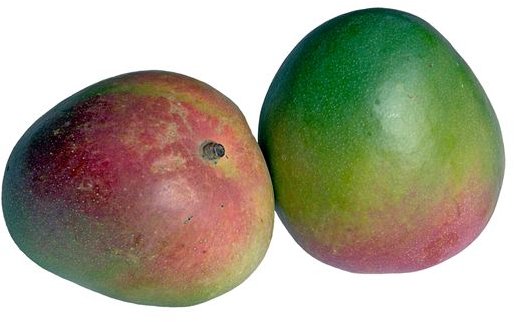Mango Nutrition Facts - What are the Health Benefits of the Mango Fruit?
History of the Mango
Mangoes belong to the genus mangifera Indica, from the plant family Anacardiaceae. With a juicy pulp and a kidney-shaped seed, the mango is known for its pleasant and rich flavor and aroma. The wonderful health benefits of the mango fruit come from the various nutrients present in it. This highly nutritious fruit is especially a boon for anyone who wants to gain weight.
The mango is a native fruit of southern Asia, especially Burma and eastern India. It is from these parts of the world that it slowly spread to Malaya, eastern Asia, and eastern Africa. It has been in cultivation for over 4,000 years although it was only introduced in Santa Barbara, California in 1880.
Mango Nutrition Facts
If you want to learn about the health benefits of the mango fruit, you should know all about its nutrients. Nutritionally, mangoes are wonderful sources of minerals such as copper and potassium. It also contains traces of other minerals such as manganese, selenium, magnesium, calcium, iron, and phosphorous. Mangoes are high in vitamin A and C. Traces of other vitamins such as E, B, and K can also be found in this wonderful orange fruit. If you want more vitamin C, try eating a raw mango rather than a ripe one. The fiber content in mangoes is also higher than other fruits.
Here are some more interesting mango nutrition facts. A medium-sized mango contains about 107 calories, 0.85 g protein, 28 g carbohydrates, and 0.45 g of total fat content. Raw mango contains starch and as the fruit ripens, this starch is converted into sugar. If you are too thin and want to gain weight, a ripe mango consumed with milk in the form of a mango shake will help. However, weight gain is not the only mango fruit health benefit.
Health Benefits of the Mango Fruit
Another nutritional benefit of the mango fruit comes from the presence of gallic acid. Since it is binding to the bowels, gallic acid works as a wonderful disinfectant for the body. Mangoes are also wonderful blood cleansers. It is also supposed to reduce excessive heat in the body and prevent body odors.
If you feel low in energy and are constantly tired, mangoes can be very beneficial. Since it is rich in vitamin content, it provides the body with strength and stamina. According to Ayurveda, mangoes improve appetite and build your resistance against diseases. Mangoes also improve digestion and cure constipation. If you want a radiant glow to your skin, don’t forget to take mangoes with milk and honey on a regular basis. This will not only leave you with a blemish-free skin, but also improve your concentration. The high phenol content in mangoes makes them a powerful anti-cancer fighting agent as well.
Mango Facts and How to Choose the Right Fruit
This fruit is typically available from May to September. It is usually orange in color, although you may also find green, yellow, or red color fruits. If you want to get all the mango health benefits, pick a fruit which looks fresh and is plump and firm to the touch. A good mango is usually considered one which has a small seed and a delicate and smooth pulp. It is sweet but slightly acidic in taste.
Ways to Consume the Mango Fruit
The best way to get all the wonderful health benefits of the mango is to eat it fresh. You can, however, combine it with other fruits in salads or drink a glass of mango milkshake for breakfast. Mango pickles and mango chutney are some delicious ways to get the benefits of raw mangoes.
Whether you eat the mangoes from the Indian race or the Philippines race, or you consume them raw or ripe, the fact is that this delicious fruit is bound to provide you with some wonderful nutrients and amazing benefits.
References
soFeminine.co.uk: Why Mangoes are good for you
https://www.sofeminine.co.uk/mag/food/d2133/x13635.html
Nutrition Data: Mangoes, raw
https://nutritiondata.self.com/facts/fruits-and-fruit-juices/1952/2
